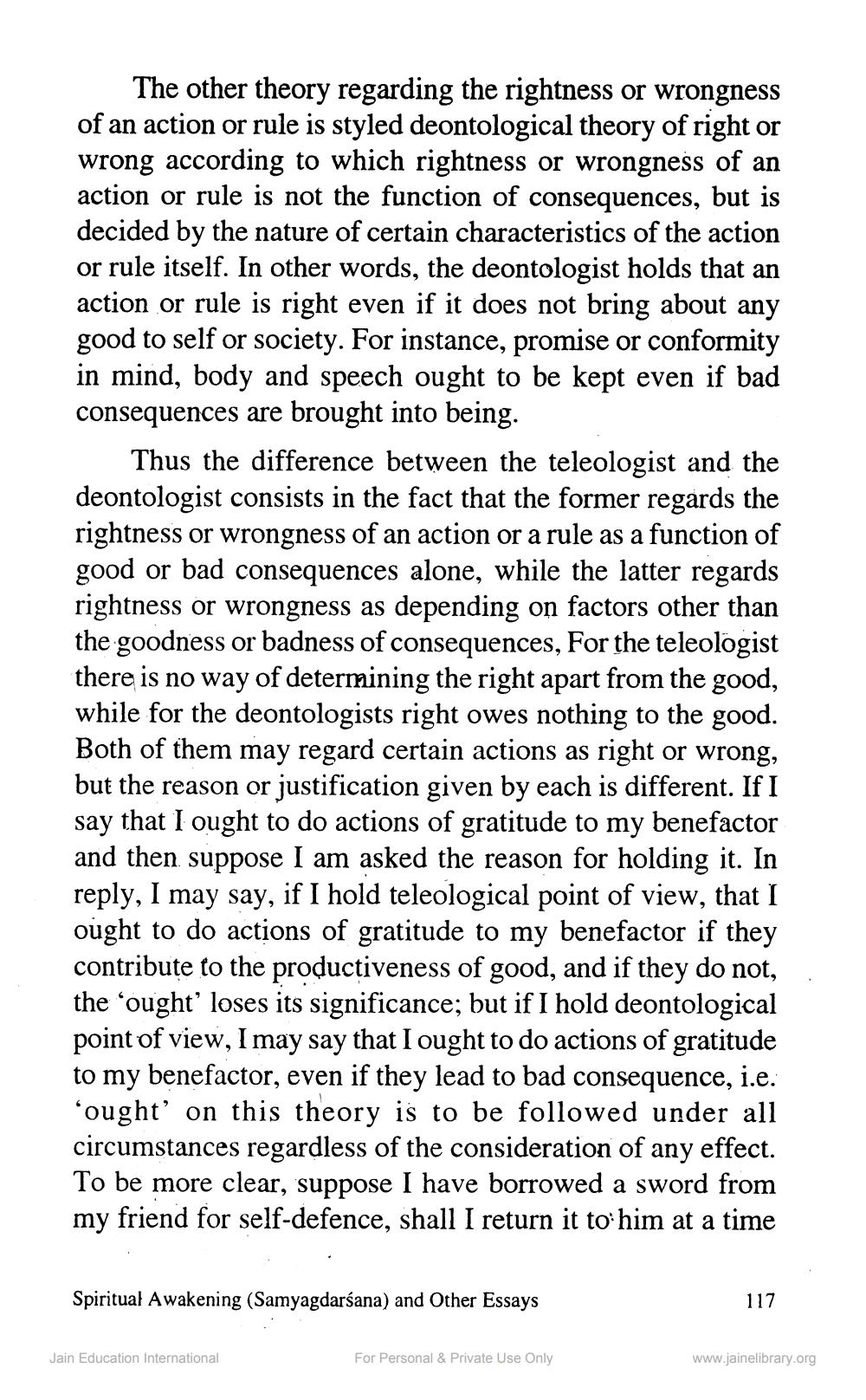________________
The other theory regarding the rightness or wrongness of an action or rule is styled deontological theory of right or wrong according to which rightness or wrongness of an action or rule is not the function of consequences, but is decided by the nature of certain characteristics of the action or rule itself. In other words, the deontologist holds that an action or rule is right even if it does not bring about any good to self or society. For instance, promise or conformity in mind, body and speech ought to be kept even if bad consequences are brought into being.
Thus the difference between the teleologist and the deontologist consists in the fact that the former regards the rightness or wrongness of an action or a rule as a function of good or bad consequences alone, while the latter regards rightness or wrongness as depending on factors other than the goodness or badness of consequences, For the teleologist there is no way of determining the right apart from the good, while for the deontologists right owes nothing to the good. Both of them may regard certain actions as right or wrong, but the reason or justification given by each is different. If I say that I ought to do actions of gratitude to my benefactor and then suppose I am asked the reason for holding it. In reply, I may say, if I hold teleological point of view, that I ought to do actions of gratitude to my benefactor if they contribute to the productiveness of good, and if they do not, the 'ought' loses its significance; but if I hold deontological point of view, I may say that I ought to do actions of gratitude to my benefactor, even if they lead to bad consequence, i.e. 'ought' on this theory is to be followed under all circumstances regardless of the consideration of any effect. To be more clear, suppose I have borrowed a sword from my friend for self-defence, shall I return it to him at a time
Spiritual Awakening (Samyagdarśana) and Other Essays
Jain Education International
For Personal & Private Use Only
117
www.jainelibrary.org




